COMMUNICATIONS
 Polycentrism, Publications, ReportsResearch Report on Blockchain Governance DynamicsReport on Blockchain Governance Dynamics
Download the report here.
As decentralized technologies such as blockchain rapidly evolve, establishing effective governance models is crucial to guide stakeholders toward a sustainable and equitable digital future. BlockchainGov and Project Liberty Institute have embarked on a multi stakeholder governance initiative on good governance for a responsible decentralized technological ecosystem to enhance understanding and promote responsible practices in this landscape. The first intermediary report compares for the first time governance mechanisms and dynamics across 11 major blockchain networks.
Using an interdisciplinary and comparative approach, the report explores prominent blockchain systems including Avalanche, Bitcoin, Cardano, Cosmos, Ethereum, Filecoin, Optimism, Polygon, Polkadot, Tezos, and Zcash. It examines these networks through a multidimensional governance taxonomy, collecting data through desk research and in-depth interviews with key stakeholders.
The Multi Stakeholder Council set up by Project Liberty and BlockchainGov for this Initiative has been instrumental in guiding the development of this report.
The analysis has uncovered six key findings related to the legal entities created to support blockchain networks, power distribution across governance areas and stakeholder groups, decentralization objectives and challenges, the interplay of on-chain code and off-chain practices in governance formalization, predominant decision-making mechanisms, and processes for handling security breaches.
The intermediary report highlights that while blockchain networks are technically decentralized across nodes, their governance involves multiple layers. Hence determining influence requires scrutinizing the types of decisions being made, the stakeholders involved, and the specific mechanisms utilized. This understanding enables designing inclusive governance aligned with community values. The report also analyzes how governance comprises both on-chain protocol rules and off-chain social practices.
The key findings of this report will guide the formulation of good governance recommendations providing pragmatic guidance to stakeholders and the overall ecosystem of blockchain and decentralized technologies. This pioneering comparison marks a milestone to advance the good governance of blockchain and decentralized technologies.
The research team crystalized the findings of this comparative studies into the practice-oriented “Blockchain Governance Toolkit – A Cookbook for a Resilient and Robust Ecosystem”!
[...]
November 19, 2024
Polycentrism, Publications, ReportsResearch Report on Blockchain Governance DynamicsReport on Blockchain Governance Dynamics
Download the report here.
As decentralized technologies such as blockchain rapidly evolve, establishing effective governance models is crucial to guide stakeholders toward a sustainable and equitable digital future. BlockchainGov and Project Liberty Institute have embarked on a multi stakeholder governance initiative on good governance for a responsible decentralized technological ecosystem to enhance understanding and promote responsible practices in this landscape. The first intermediary report compares for the first time governance mechanisms and dynamics across 11 major blockchain networks.
Using an interdisciplinary and comparative approach, the report explores prominent blockchain systems including Avalanche, Bitcoin, Cardano, Cosmos, Ethereum, Filecoin, Optimism, Polygon, Polkadot, Tezos, and Zcash. It examines these networks through a multidimensional governance taxonomy, collecting data through desk research and in-depth interviews with key stakeholders.
The Multi Stakeholder Council set up by Project Liberty and BlockchainGov for this Initiative has been instrumental in guiding the development of this report.
The analysis has uncovered six key findings related to the legal entities created to support blockchain networks, power distribution across governance areas and stakeholder groups, decentralization objectives and challenges, the interplay of on-chain code and off-chain practices in governance formalization, predominant decision-making mechanisms, and processes for handling security breaches.
The intermediary report highlights that while blockchain networks are technically decentralized across nodes, their governance involves multiple layers. Hence determining influence requires scrutinizing the types of decisions being made, the stakeholders involved, and the specific mechanisms utilized. This understanding enables designing inclusive governance aligned with community values. The report also analyzes how governance comprises both on-chain protocol rules and off-chain social practices.
The key findings of this report will guide the formulation of good governance recommendations providing pragmatic guidance to stakeholders and the overall ecosystem of blockchain and decentralized technologies. This pioneering comparison marks a milestone to advance the good governance of blockchain and decentralized technologies.
The research team crystalized the findings of this comparative studies into the practice-oriented “Blockchain Governance Toolkit – A Cookbook for a Resilient and Robust Ecosystem”!
[...]
November 19, 2024 News, Polycentrism, Publications, ReportsBlockchain Technology and Polycentric Governance – A research reportBlockchain Technology and Polycentric Governance – A Research Report
Download the report here.
This report, released in its final version in July 2024, addresses the polycentric governance of blockchain systems, following conversations held from September 2022 until September 2023 by a reading group of blockchain practitioners and academics. The ERC-funded BlockchainGov project led the reading group. Since the publication of the Bitcoin whitepaper in 2008, blockchain technology has gained increasing popularity for being a “decentralized” ledger of transactions. Collectives of people have formed to discuss and decide on—to “govern”—the evolution of blockchain networks and blockchain-based applications, creating what we refer to as “blockchain systems.” While much literature is dedicated to understanding the governance of blockchain systems, no substantial efforts have been made to apply the concept of “polycentricity” to blockchain governance. Polycentric governance systems are characterized by multiple autonomous decision-making centers with overlapping areas of responsibility, which both compete and cooperate within a common overarching system of commonly agreed-upon rules, spontaneously or deliberately generating a shared social order. A term initially presented by Michael Polanyi and famously further developed by Vincent and Elinor Ostrom, polycentricity allows us to understand blockchain systems’ structure, process, and outcome. [...]
July 2, 2024
News, Polycentrism, Publications, ReportsBlockchain Technology and Polycentric Governance – A research reportBlockchain Technology and Polycentric Governance – A Research Report
Download the report here.
This report, released in its final version in July 2024, addresses the polycentric governance of blockchain systems, following conversations held from September 2022 until September 2023 by a reading group of blockchain practitioners and academics. The ERC-funded BlockchainGov project led the reading group. Since the publication of the Bitcoin whitepaper in 2008, blockchain technology has gained increasing popularity for being a “decentralized” ledger of transactions. Collectives of people have formed to discuss and decide on—to “govern”—the evolution of blockchain networks and blockchain-based applications, creating what we refer to as “blockchain systems.” While much literature is dedicated to understanding the governance of blockchain systems, no substantial efforts have been made to apply the concept of “polycentricity” to blockchain governance. Polycentric governance systems are characterized by multiple autonomous decision-making centers with overlapping areas of responsibility, which both compete and cooperate within a common overarching system of commonly agreed-upon rules, spontaneously or deliberately generating a shared social order. A term initially presented by Michael Polanyi and famously further developed by Vincent and Elinor Ostrom, polycentricity allows us to understand blockchain systems’ structure, process, and outcome. [...]
July 2, 2024 Blockchain Constitutionalism, News, Publications, ReportsThe Blockchain Governance Toolkit – A Cookbook for a Resilient and Robust EcosystemThe Blockchain Governance Toolkit – A Cookbook for a Resilient and Robust Ecosystem
Download the report here.
BlockchainGov works to support and guide decentralized communities in the process of choosing and implementing their own mechanism of distributed governance.
BlockchainGov has embarked with Project Liberty Institute on year-long research initiative on the governance of blockchain networks and decentralized systems, exploring ways for communities to design governance models that allow people to be represented and express their voices.
Today our collaborative endeavor culminate with “The Blockchain Governance Toolkit – A Cookbook for a Resilient and Robust Ecosystem”!
After investigating the governance dynamics of 11 leading blockchain networks, this toolkit translates our insights into actionable tools and recommendations aiming to pave the way for a more equitable and sustainable technological ecosystem, at large.
Through this toolkit, we aim to help governance designers develop resilient and robust governance systems for their respective blockchain networks, considering their respective preferences, goals, and contexts.
We decided to structure this report as a toolkit (a cookbook) rather than a technical manual so that we can present multiple governance solutions (recipes), each with their unique features (flavors). We articulated five steps for a better governance:
Step #1 – Blockchain governance requires balancing trade-offs. One must start by picking flavors. Expediency or Participation? Immutability or Adaptability? Determinism or Discretion?
Step #2 – Governance primitives enable desired designs. Now, pick your ingredients! Expedient → participatory: multi-signature councils to plural voting. Immutable → adaptable: exit-only systems to improvement proposals. Deterministic → discretionary: self-executing systems to rough consensus.
Step #3 – Resilient governance involves balancing preferences. Strong flavors in check! Adopt power checks for expedient systems and hard forking for immutable systems. You can use blockchain constitutions for adaptable systems or on-chain time-delay for heavily deterministic systems.
Step #4 – Feedback loops are crucial for refining blockchain governance. Keep improving your recipe! Feedback loops should leverage humans as sensors, especially in systems where technology and society mix in complex ways, such as blockchain governance systems.
Step #5 – Pick up a legal entity. Now food is ready and must be served! Legal entities aid blockchain participants in balancing ’embeddedness’ and ‘disembeddedness’. By possessing separate legal personalities, they can engage in contracts, own assets, and shield entities from creditors, ensuring both ‘entity’ and ‘owner’ protection.
Hungry for more choice and voice in the technology that impacts your daily life? Have a look at our Blockchain Governance Design Cookbook!
[...]
June 10, 2024
Blockchain Constitutionalism, News, Publications, ReportsThe Blockchain Governance Toolkit – A Cookbook for a Resilient and Robust EcosystemThe Blockchain Governance Toolkit – A Cookbook for a Resilient and Robust Ecosystem
Download the report here.
BlockchainGov works to support and guide decentralized communities in the process of choosing and implementing their own mechanism of distributed governance.
BlockchainGov has embarked with Project Liberty Institute on year-long research initiative on the governance of blockchain networks and decentralized systems, exploring ways for communities to design governance models that allow people to be represented and express their voices.
Today our collaborative endeavor culminate with “The Blockchain Governance Toolkit – A Cookbook for a Resilient and Robust Ecosystem”!
After investigating the governance dynamics of 11 leading blockchain networks, this toolkit translates our insights into actionable tools and recommendations aiming to pave the way for a more equitable and sustainable technological ecosystem, at large.
Through this toolkit, we aim to help governance designers develop resilient and robust governance systems for their respective blockchain networks, considering their respective preferences, goals, and contexts.
We decided to structure this report as a toolkit (a cookbook) rather than a technical manual so that we can present multiple governance solutions (recipes), each with their unique features (flavors). We articulated five steps for a better governance:
Step #1 – Blockchain governance requires balancing trade-offs. One must start by picking flavors. Expediency or Participation? Immutability or Adaptability? Determinism or Discretion?
Step #2 – Governance primitives enable desired designs. Now, pick your ingredients! Expedient → participatory: multi-signature councils to plural voting. Immutable → adaptable: exit-only systems to improvement proposals. Deterministic → discretionary: self-executing systems to rough consensus.
Step #3 – Resilient governance involves balancing preferences. Strong flavors in check! Adopt power checks for expedient systems and hard forking for immutable systems. You can use blockchain constitutions for adaptable systems or on-chain time-delay for heavily deterministic systems.
Step #4 – Feedback loops are crucial for refining blockchain governance. Keep improving your recipe! Feedback loops should leverage humans as sensors, especially in systems where technology and society mix in complex ways, such as blockchain governance systems.
Step #5 – Pick up a legal entity. Now food is ready and must be served! Legal entities aid blockchain participants in balancing ’embeddedness’ and ‘disembeddedness’. By possessing separate legal personalities, they can engage in contracts, own assets, and shield entities from creditors, ensuring both ‘entity’ and ‘owner’ protection.
Hungry for more choice and voice in the technology that impacts your daily life? Have a look at our Blockchain Governance Design Cookbook!
[...]
June 10, 2024 News, Publications, ReportsProof of Humanity: Ethnographic Research of a “democratic” DAOJamilya Kamalova, Sofia Cossar, Tara Merk.
In early 2021, the first Sybil-resistant registry of humans was launched. The Proof of Humanity (PoH) registry and the PoH DAO is the first decentralized autonomous organization democratically governed running on the Ethereum network. To help us conduct this research, we relied on academic articles from a lot of different disciplines, such as political science, digital ethnography, democratic theory (especially literature conceptualizing Western liberal democracies to make sense of our empirical observations and findings), but also studies on blockchain systems and blockchain-based governance.
The problem of this research is: What governance dynamics led to the Proof of Humanity DAO’s crisis and decision to fork?
Our theory was that such a decision came from a persistent governance crisis caused by the absence of strong democratic elements, procedures, regulations, and institutions that could have supported the coexistence of its diverse community rather than leading to its growing and ultimately irreparable division. So we conducted this ethnographic study involving online observation, interviews, events, and institutional analysis. Participants signed community consent forms under BlockchainGov’s research ethics, approved by EUI/CERSA, and agreed to the use and publication of data collected about the PoH DAO community for this research project.
Now, in March 2024, we are releasing an updated version of the research, integrating the feedback received from the community on the originally presented findings.
Read the paper to discover more about our findings! This document is available in English and Spanish.
Download the report here.
[...]
March 12, 2024
News, Publications, ReportsProof of Humanity: Ethnographic Research of a “democratic” DAOJamilya Kamalova, Sofia Cossar, Tara Merk.
In early 2021, the first Sybil-resistant registry of humans was launched. The Proof of Humanity (PoH) registry and the PoH DAO is the first decentralized autonomous organization democratically governed running on the Ethereum network. To help us conduct this research, we relied on academic articles from a lot of different disciplines, such as political science, digital ethnography, democratic theory (especially literature conceptualizing Western liberal democracies to make sense of our empirical observations and findings), but also studies on blockchain systems and blockchain-based governance.
The problem of this research is: What governance dynamics led to the Proof of Humanity DAO’s crisis and decision to fork?
Our theory was that such a decision came from a persistent governance crisis caused by the absence of strong democratic elements, procedures, regulations, and institutions that could have supported the coexistence of its diverse community rather than leading to its growing and ultimately irreparable division. So we conducted this ethnographic study involving online observation, interviews, events, and institutional analysis. Participants signed community consent forms under BlockchainGov’s research ethics, approved by EUI/CERSA, and agreed to the use and publication of data collected about the PoH DAO community for this research project.
Now, in March 2024, we are releasing an updated version of the research, integrating the feedback received from the community on the originally presented findings.
Read the paper to discover more about our findings! This document is available in English and Spanish.
Download the report here.
[...]
March 12, 2024 Blockchain Constitutionalism, News, Publications, ReportsInterim Report on Blockchain GovernanceInterim Report on Blockchain Governance Practices
Download the report here.
As decentralized technologies such as blockchain rapidly evolve, establishing effective governance models is crucial to guide stakeholders towards a sustainable and equitable digital future. To enhance understanding and promote responsible practices in this landscape, Project Liberty Institute and BlockchainGov have embarked on a multi stakeholder governance initiative on good governance for a responsible decentralized technological ecosystem. The first intermediary report compares for the first time governance mechanisms and dynamics across 11 major blockchain networks.
Using an interdisciplinary and comparative approach, the report explores prominent blockchain systems including Avalanche, Bitcoin, Cardano, Cosmos, Ethereum, Filecoin, Optimism, Polygon, Polkadot, Tezos, and Zcash. It examines these networks through a multidimensional governance taxonomy, collecting data through desk research and in-depth interviews with key stakeholders.
The Multi Stakeholder Council set up by Project Liberty and BlockchainGov for this Initiative has been instrumental in guiding the development of this report.
The analysis has uncovered six key findings related to the legal entities created to support blockchain networks, power distribution across governance areas and stakeholder groups, decentralization objectives and challenges, the interplay of on-chain code and off-chain practices in governance formalization, predominant decision-making mechanisms, and processes for handling security breaches.
The intermediary report highlights that while blockchain networks are technically decentralized across nodes, their governance involves multiple layers. Hence determining influence requires scrutinizing the types of decisions being made, the stakeholders involved, and the specific mechanisms utilized. This understanding enables designing inclusive governance aligned with community values. The report also analyzes how governance comprises both on-chain protocol rules and off-chain social practices.
The key findings of this report will guide the formulation of good governance recommendations providing pragmatic guidance to stakeholders and the overall ecosystem of blockchain and decentralized technologies.
This pioneering comparison marks a milestone to advance the good governance of blockchain and decentralized technologies.
Project Liberty Institute and BlockchainGov, together with the members of the Initiative’s Governance Multi Stakeholder Council, will now, based on the findings of this comparative study, work on distilling recommendations for the forthcoming Manual on Best Practices for Blockchain and Decentralized Technologies, scheduled for release in April 2024.
[...]
January 25, 2024
Blockchain Constitutionalism, News, Publications, ReportsInterim Report on Blockchain GovernanceInterim Report on Blockchain Governance Practices
Download the report here.
As decentralized technologies such as blockchain rapidly evolve, establishing effective governance models is crucial to guide stakeholders towards a sustainable and equitable digital future. To enhance understanding and promote responsible practices in this landscape, Project Liberty Institute and BlockchainGov have embarked on a multi stakeholder governance initiative on good governance for a responsible decentralized technological ecosystem. The first intermediary report compares for the first time governance mechanisms and dynamics across 11 major blockchain networks.
Using an interdisciplinary and comparative approach, the report explores prominent blockchain systems including Avalanche, Bitcoin, Cardano, Cosmos, Ethereum, Filecoin, Optimism, Polygon, Polkadot, Tezos, and Zcash. It examines these networks through a multidimensional governance taxonomy, collecting data through desk research and in-depth interviews with key stakeholders.
The Multi Stakeholder Council set up by Project Liberty and BlockchainGov for this Initiative has been instrumental in guiding the development of this report.
The analysis has uncovered six key findings related to the legal entities created to support blockchain networks, power distribution across governance areas and stakeholder groups, decentralization objectives and challenges, the interplay of on-chain code and off-chain practices in governance formalization, predominant decision-making mechanisms, and processes for handling security breaches.
The intermediary report highlights that while blockchain networks are technically decentralized across nodes, their governance involves multiple layers. Hence determining influence requires scrutinizing the types of decisions being made, the stakeholders involved, and the specific mechanisms utilized. This understanding enables designing inclusive governance aligned with community values. The report also analyzes how governance comprises both on-chain protocol rules and off-chain social practices.
The key findings of this report will guide the formulation of good governance recommendations providing pragmatic guidance to stakeholders and the overall ecosystem of blockchain and decentralized technologies.
This pioneering comparison marks a milestone to advance the good governance of blockchain and decentralized technologies.
Project Liberty Institute and BlockchainGov, together with the members of the Initiative’s Governance Multi Stakeholder Council, will now, based on the findings of this comparative study, work on distilling recommendations for the forthcoming Manual on Best Practices for Blockchain and Decentralized Technologies, scheduled for release in April 2024.
[...]
January 25, 2024 Publications, ReportsERC Scientific Report – 18 Months18 Months of ERC Grant – Bits from the Scientific Report
In 2023, BlokchainGov completed the first half of the three-year-long ERC grant. We were requested to report the achievements and goals of our project so far. We took the chance to reflect and look back at 1.5 years of experimentation and research in the space. This exercise was useful to summarize and recap the progress we made and the challenges we encountered in this time. We desire to share some bits from the Scientific Report to mark this moment in time.
Advancements in Blockchain Governance Research
What kind of progresses we made in our research? How did our findings influenced the premises and the methodologies of our research?
Unveiling Trust in Blockchain Systems:Beyond conventional trustless technology perceptions, our research exposes the persistence of trust in blockchain systems. This profound insight challenges existing notions and explores how trust can be leveraged to enhance governance structures.
Understanding Challenges in Distributed Governance:Challenging assumptions in early distributed governance literature, our research delves into the challenges faced by collaborative organizations. Apathy, technical constraints, and uneven participation emerge as critical issues that require proactive addressing for effective governance.
Tacit Governance Practices Revealed:Incorporating innovative ethnographic methods, including the telescope bot, our research uncovers the tacit and invisible governance practices underpinning many blockchain systems. This in-depth understanding enhances our knowledge of the intricacies involved in governing blockchain networks.
Token-Bound NFT License:Addressing critical issues in the NFT space, our research introduces the Token-Bound NFT License. This novel copyright license empowers NFT owners with comprehensive rights over associated creative works, tackling the separation of NFTs from the underlying content.
Pioneering New Network Sovereignties:Our project challenges traditional paradigms of Network States by proposing New Network Sovereignties. Based on commons-based principles, these non-state actors represent a new model for post-Westphalian global governance, sparking a reevaluation of international relations.
Alegality Paradigms :Alegal paradigms, a key focus of our research, redefine governance in the context of blockchain systems by navigating the space beyond conventional legality. In this innovative approach, actions within decentralized networks, such as smart contracts and DAOs, exist in regulatory gray areas, neither explicitly legal nor illegal. Alegal governance recognizes the unique features of blockchain, prompting a reassessment of regulatory frameworks. It advocates for a balanced approach that preserves the trust mechanisms inherent in decentralized systems while acknowledging the need for regulatory adaptation. This concept challenges traditional legal norms, paving the way for a governance paradigm that embraces the distinctive characteristics of blockchain technologies on a global scale.
Off Chain Constituzionalization:Recognizing the importance of off-chain constitutions for blockchain governance, we aim to challenge the prevailing focus on designing trustless systems and solve governance issues.
Societal Impacts and Global Outreach
BlockhainGov’s work aims to impact the current blockchain landscape and to shape the evolution of both the technology and the culture surrounding it. Here are some of the ways in which we try to propagate our research in the space.
Timely and Impactful Regulation. The case of DAO Model Law:Our work on the DAO Model Law significantly contributes to global discussions on DAO regulation. Striking a balance between public policy concerns and the unique features of blockchain systems, our approach influences legislative developments and broader public engagement with DAOs.
Token-Bound NFT License and Regulatory Innovation:The aforementioned Token-Bound NFT License introduces a novel legal framework addressing copyright and ownership concerns in the NFT space. This innovation has the potential to reshape how NFT artists license their works and navigate legal considerations.
Public Awareness Initiatives:Our team actively engages in initiatives to raise public awareness about blockchain governance and New Network Sovereignties. Through op-eds, blogs, and a podcast series (Overthrowing the Network State), we provide a nuanced perspective accessible to a broad audience.
Co-Design for Improved Governance:Our research outcomes extend beyond academia, offering practical solutions and recommendations for industry practitioners. By collaborating and receiving feedback from industry stakeholders, we ensure that our work contributes to improving governance practices in the broader community. [...]
January 5, 2024
Publications, ReportsERC Scientific Report – 18 Months18 Months of ERC Grant – Bits from the Scientific Report
In 2023, BlokchainGov completed the first half of the three-year-long ERC grant. We were requested to report the achievements and goals of our project so far. We took the chance to reflect and look back at 1.5 years of experimentation and research in the space. This exercise was useful to summarize and recap the progress we made and the challenges we encountered in this time. We desire to share some bits from the Scientific Report to mark this moment in time.
Advancements in Blockchain Governance Research
What kind of progresses we made in our research? How did our findings influenced the premises and the methodologies of our research?
Unveiling Trust in Blockchain Systems:Beyond conventional trustless technology perceptions, our research exposes the persistence of trust in blockchain systems. This profound insight challenges existing notions and explores how trust can be leveraged to enhance governance structures.
Understanding Challenges in Distributed Governance:Challenging assumptions in early distributed governance literature, our research delves into the challenges faced by collaborative organizations. Apathy, technical constraints, and uneven participation emerge as critical issues that require proactive addressing for effective governance.
Tacit Governance Practices Revealed:Incorporating innovative ethnographic methods, including the telescope bot, our research uncovers the tacit and invisible governance practices underpinning many blockchain systems. This in-depth understanding enhances our knowledge of the intricacies involved in governing blockchain networks.
Token-Bound NFT License:Addressing critical issues in the NFT space, our research introduces the Token-Bound NFT License. This novel copyright license empowers NFT owners with comprehensive rights over associated creative works, tackling the separation of NFTs from the underlying content.
Pioneering New Network Sovereignties:Our project challenges traditional paradigms of Network States by proposing New Network Sovereignties. Based on commons-based principles, these non-state actors represent a new model for post-Westphalian global governance, sparking a reevaluation of international relations.
Alegality Paradigms :Alegal paradigms, a key focus of our research, redefine governance in the context of blockchain systems by navigating the space beyond conventional legality. In this innovative approach, actions within decentralized networks, such as smart contracts and DAOs, exist in regulatory gray areas, neither explicitly legal nor illegal. Alegal governance recognizes the unique features of blockchain, prompting a reassessment of regulatory frameworks. It advocates for a balanced approach that preserves the trust mechanisms inherent in decentralized systems while acknowledging the need for regulatory adaptation. This concept challenges traditional legal norms, paving the way for a governance paradigm that embraces the distinctive characteristics of blockchain technologies on a global scale.
Off Chain Constituzionalization:Recognizing the importance of off-chain constitutions for blockchain governance, we aim to challenge the prevailing focus on designing trustless systems and solve governance issues.
Societal Impacts and Global Outreach
BlockhainGov’s work aims to impact the current blockchain landscape and to shape the evolution of both the technology and the culture surrounding it. Here are some of the ways in which we try to propagate our research in the space.
Timely and Impactful Regulation. The case of DAO Model Law:Our work on the DAO Model Law significantly contributes to global discussions on DAO regulation. Striking a balance between public policy concerns and the unique features of blockchain systems, our approach influences legislative developments and broader public engagement with DAOs.
Token-Bound NFT License and Regulatory Innovation:The aforementioned Token-Bound NFT License introduces a novel legal framework addressing copyright and ownership concerns in the NFT space. This innovation has the potential to reshape how NFT artists license their works and navigate legal considerations.
Public Awareness Initiatives:Our team actively engages in initiatives to raise public awareness about blockchain governance and New Network Sovereignties. Through op-eds, blogs, and a podcast series (Overthrowing the Network State), we provide a nuanced perspective accessible to a broad audience.
Co-Design for Improved Governance:Our research outcomes extend beyond academia, offering practical solutions and recommendations for industry practitioners. By collaborating and receiving feedback from industry stakeholders, we ensure that our work contributes to improving governance practices in the broader community. [...]
January 5, 2024 Blockchain Constitutionalism, Conference Organizations, News, Polycentrism, ReportsResearch Report – Blockchain Constitutionalism: The Role Of Legitimacy In Polycentric SystemsResearch Report – Blockchain Constitutionalism: The Role Of Legitimacy In Polycentric Systems
Primavera de Filippi, Morshed Mannan, Kelsie Nabben, Jamilya Kamalova, Sofia Cossar, Tara Merk, Silke Noa, Marco Crepaldi, Joshua Dávila.
Between 5 and 7 June 2023, BlockchainGov organized a conference on “Blockchain Constitutionalism: The Role of Legitimacy in Polycentric Systems” at the Robert Schuman Centre for Advanced Studies, European University Institute in Florence, Italy.
Blockchain networks and Decentralized Autonomous Organizations (DAOs) have seen a surge in adoption in recent years. To fulfill their promise of widespread structural innovation and change meaningfully, they require governance that maintains legitimacy for internal and external stakeholders. As permissionless, globe-spanning technologies with significant effects on the general public, there has been a growing interest in viewing these blockchain-based systems in constitutional terms.
Early analysis regarded the rules expressed through software code as a form of ‘on-chain constitution.’ At the same time, more recently, these have been supplemented with written documents that articulate additional rules and principles regarding the governance of the blockchain-based system (‘off-chain constitutions’). The common thread among the various examples of blockchain “constitutions” seems to be that they define aspects of a system’s decision-making process and make them relatively difficult to change. However, both blockchain practitioners and legal scholars do not agree on whether we should consider these as ‘constitutions’ or ‘constitutionalization’ processes in a strict sense, nor to what extent these efforts can render blockchain systems more legitimate.
The EUI Conference brought together experts, academics, and practitioners to explore this intersection. You can read the full report here. [...]
October 26, 2023
Blockchain Constitutionalism, Conference Organizations, News, Polycentrism, ReportsResearch Report – Blockchain Constitutionalism: The Role Of Legitimacy In Polycentric SystemsResearch Report – Blockchain Constitutionalism: The Role Of Legitimacy In Polycentric Systems
Primavera de Filippi, Morshed Mannan, Kelsie Nabben, Jamilya Kamalova, Sofia Cossar, Tara Merk, Silke Noa, Marco Crepaldi, Joshua Dávila.
Between 5 and 7 June 2023, BlockchainGov organized a conference on “Blockchain Constitutionalism: The Role of Legitimacy in Polycentric Systems” at the Robert Schuman Centre for Advanced Studies, European University Institute in Florence, Italy.
Blockchain networks and Decentralized Autonomous Organizations (DAOs) have seen a surge in adoption in recent years. To fulfill their promise of widespread structural innovation and change meaningfully, they require governance that maintains legitimacy for internal and external stakeholders. As permissionless, globe-spanning technologies with significant effects on the general public, there has been a growing interest in viewing these blockchain-based systems in constitutional terms.
Early analysis regarded the rules expressed through software code as a form of ‘on-chain constitution.’ At the same time, more recently, these have been supplemented with written documents that articulate additional rules and principles regarding the governance of the blockchain-based system (‘off-chain constitutions’). The common thread among the various examples of blockchain “constitutions” seems to be that they define aspects of a system’s decision-making process and make them relatively difficult to change. However, both blockchain practitioners and legal scholars do not agree on whether we should consider these as ‘constitutions’ or ‘constitutionalization’ processes in a strict sense, nor to what extent these efforts can render blockchain systems more legitimate.
The EUI Conference brought together experts, academics, and practitioners to explore this intersection. You can read the full report here. [...]
October 26, 2023 Articles, Books, News, Publications, ReportsNew Academic Papers Alert!New
Academic Papers
Alert !
De Filippi, P, Mannan, M. presentation of “The BlockchainGov Report on Trust and Confidence in Blockchain Technology”, in the framework of the EUI Tech Cluster research seminar series. European University Institute. 18 May 2022. Florence. Italy
Our team is involved in a variety of research projects, focus groups and initiatives that aim to explore challenges of the blockchain technology.
Here are some of the recently published selected papers authored by our members, advisors and affiliates:
1. De Filippi, P., Poux, P., Deffains, B. (2022) “MEV ou la tragédie des blockchains en tant que communs, in Terminal. (forthcoming)
2. Rennie, E., Zargham, M., Tan, J., Miller, L., Abbott, J., Nabben, K., De Filippi, P. (2022) “Towards a participatory digital ethnography of blockchain governance.”
3. Reijers, W., Orgad, L., De Filippi, P. (2022) “The Rise of Cybernetic Citizenship” in Citizenship Studies, Special Issue on “Digital Citizenship in the Post-Pandemic Urban Realm.
4. De Filippi, P., Mannan, M., Reijers, W. (2022) “The Alegality of Blockchain Technology”, in Policy & Society, special issue: “The Policy Dilemmas of Blockchain”.
5. De Filippi, P., Leiter, A. (2021) “Blockchain in Outer Space” in American Journal of International Law (AJIL) Unbound, special issue: “The Global Governance Implications of Blockchain”
[...]
August 6, 2022
Articles, Books, News, Publications, ReportsNew Academic Papers Alert!New
Academic Papers
Alert !
De Filippi, P, Mannan, M. presentation of “The BlockchainGov Report on Trust and Confidence in Blockchain Technology”, in the framework of the EUI Tech Cluster research seminar series. European University Institute. 18 May 2022. Florence. Italy
Our team is involved in a variety of research projects, focus groups and initiatives that aim to explore challenges of the blockchain technology.
Here are some of the recently published selected papers authored by our members, advisors and affiliates:
1. De Filippi, P., Poux, P., Deffains, B. (2022) “MEV ou la tragédie des blockchains en tant que communs, in Terminal. (forthcoming)
2. Rennie, E., Zargham, M., Tan, J., Miller, L., Abbott, J., Nabben, K., De Filippi, P. (2022) “Towards a participatory digital ethnography of blockchain governance.”
3. Reijers, W., Orgad, L., De Filippi, P. (2022) “The Rise of Cybernetic Citizenship” in Citizenship Studies, Special Issue on “Digital Citizenship in the Post-Pandemic Urban Realm.
4. De Filippi, P., Mannan, M., Reijers, W. (2022) “The Alegality of Blockchain Technology”, in Policy & Society, special issue: “The Policy Dilemmas of Blockchain”.
5. De Filippi, P., Leiter, A. (2021) “Blockchain in Outer Space” in American Journal of International Law (AJIL) Unbound, special issue: “The Global Governance Implications of Blockchain”
[...]
August 6, 2022 Publications, ReportsA meta-proposal for Twitter’s bluesky projectEsber, J., Sender, B., Zuckerman, E., Lee, C., Nwachukwu, N., Ly, O., Suber, P., De Filippi, P., Massachi, S., Klein, S., Zick, T. (2021). A meta-proposal for Twitter’s bluesky project (March 31, 2021). [...]
November 15, 2021
Publications, ReportsA meta-proposal for Twitter’s bluesky projectEsber, J., Sender, B., Zuckerman, E., Lee, C., Nwachukwu, N., Ly, O., Suber, P., De Filippi, P., Massachi, S., Klein, S., Zick, T. (2021). A meta-proposal for Twitter’s bluesky project (March 31, 2021). [...]
November 15, 2021 Publications, ReportsModel Law for DAOsThere are ongoing debates surrounding the legal status of DAOs, their participants and procedures. For example, how can an organization that is inherently transnational in nature, benefit from affordances such as legal personality and limited liability without incorporation in a single jurisdiction? Or conversely, how can legal requirements like “registration” & “reporting” be translated to an organization made of bits? This legal insecurity has significantly hampered the development and broader adoption of this new form of social organization.
The DAO Model Law is a multistakeholder effort led by COALA (Coalition of Legal Automated Applications) to provide legal certainty for DAOs and their participants, and unlike other regulatory frameworks, accommodate flexibility for their unique features and further innovation. The Model Law seeks to strike a balance between the importance of innovation and experimental freedom in technological development, and the importance of legal protections and a sound regulatory framework in encouraging broader societal engagement with this new organizational structure.
Who is the DAO Model Law aimed for?
For policy-makers who wish to support the formation and management of DAOs, the DAO Model Law provides a harmonized model for legislation that still harnesses the unique properties of DAOs that make them alegal, or not currently seen by the legal system, in the first place. For instance, rather than seeking to draw DAOs within a territorial legal order, the Model Law emphasizes recognition by states, rather than registration in states, to accommodate the transnational nature of DAOs. It also combines extensive party autonomy for DAO members and separate legal personality for the DAO in order to facilitate, rather than hinder, pseudonymous participation and recognize that human-to-machine or machine-to-machine interactions can carry out valid legal acts.
For participants in DAOs, the Model Law provides the benefits of legal personality, legal capacity and limited liability. Although no governmental authority could directly enforce the Model Law provisions onto a DAO, these benefits offer ample incentive to comply with the Model Law. The recognition of legal personhood for DAOs entails many rights and protections—such as the right to own assets, enter into contractual relationships, sue or be sued, and potentially benefit from a limited liability regime. Some will forgo legal recognition, preferring instead autonomy in their operation and governance. DAOs that seek legal personality and limited liability of its members might need to implement specific features and technological guarantees that accommodate important policy objectives, such as publicity about the formation and governance of business organizations.
How does the DAO Model law work?
The Model Law task force studied the provisions of corporate law, aiming for a light-touch approach to regulation based on the principles of functional and regulatory equivalence.
Functional equivalences work as a pathway to establish the equivalence of an object that is already contemplated by legal rule and another that is not. Such equivalences broaden the means by which a regulated activity can be considered legally compliant. A well-known precedent is the UNCITRAL Model Law for Electronic Commerce, which establishes functional equivalence between a paper-based document and an electronic document. For the regulation of DAOs, the Model Law aims to establish functional equivalence between the transfer of corporate shares on the official company share registers and the use of blockchain-based infrastructure to achieve the same function.
Regulatory equivalences work with a similar logic, identifying the policy objective behind any given regulation and how this same goal can be achieved through different means, in this case through the affordances of blockchain technology. To establish regulatory equivalence the Model Law holds that the publication of certain information on a publicly-accessible blockchain meets the publicity objective of corporate registration.
Using these conceptual frameworks, the Model Law addresses the following points:
Identification of legal corporate rules that can be fulfilled through technological guarantees in the blockchain space (e.g. smart-contract-based separation of funds, blockchain-enforced “corporate veil”, real-time audits and reporting, agency problem, etc. )
Discussions on the specificities of blockchain-based organisations that must be accounted for from a legal perspective(e.g. forking, protocol changes, etc.) and elaboration of techno-legal solutions to address these specificities.
Identification of legal corporate rules that do not have a technical equivalent solution (e.g., KYC identification of all participants) and elaboration of techno-legal alternatives that better account for the technical guarantees of blockchain technology.
Establishing the legal foundations of ‘regulatory equivalence’ — collecting previous examples of “functional equivalence” (e.g. the UNCITRAL electronic contracts) and “regulatory equivalence” (e.g. EU ‘principle-based’ regulatory approaches).
The DAO Model Law draws on lessons from model laws for flexible business organizations (e.g., OAS Model Law for the Simplified Stock Corporation) to pursue specific objectives like the uniform treatment of DAOs across States—particularly with respect to recognizing the legal personality and/or limited liability of its members. It also considers a series of new scenarios that are not encountered during the ordinary operations of more traditional organisations, by setting out procedures for hard forking decisions and remedying technical bugs or exploits that would otherwise render the DAO unoperational. It stipulates a series of governance rules for handling exceptional events such as TheDAO attack and other contentious forks, thereby mitigating both public policy concerns regarding unaccountability and participant concerns about potential joint and several liability.
What’s next?
The task force has already identified ways to extend the Model Law moving forward. Through a series of case studies looking at current DAO governance models and their stakeholders, the Model Law might address common problems in corporate governance, such as agency problems and conflicts of interest among multiple stakeholders, by examining how blockchain addresses these issues that would otherwise be addressed by legal means. The Model Law might also identify functional equivalence between existing corporate governance requirements and the governance procedures of DAOs and their internal controls for decision-making, participation and funds management.
In the coming months the task force hopes to engage a broad audience of people and diverse stakeholders in order to raise awareness on the topics addressed, foster discussions and collaborate on the model’s continuous evolution. With this first iteration, the goal was to convene legal scholars in blockchain to bridge the gap between a variety of existing and potential activities of DAOs and the various regulatory frameworks currently or yet to be implemented in different jurisdictions. But this is only the beginning of a much longer journey: the DAO Model Law will depend on ongoing exchanges between lawyers, technologists and eventually policy makers to thoughtfully address the fast-moving landscape of blockchain-based systems and achieve broad and participatory adoption.
Read the DAO Model Law in full here. Please do not hesitate to reach out to us at info@coala.global if you would like to learn more or contribute to the DAO Model Law project.
Choi, C., De Filippi, P., Dudley, R., Elrifai, S., Fannizadeh, F., Guillaume, F., Leiter, A., Mannan, M., McMullen, G., Riva, S., Shimony O. (2021) [...]
November 15, 2021
Publications, ReportsModel Law for DAOsThere are ongoing debates surrounding the legal status of DAOs, their participants and procedures. For example, how can an organization that is inherently transnational in nature, benefit from affordances such as legal personality and limited liability without incorporation in a single jurisdiction? Or conversely, how can legal requirements like “registration” & “reporting” be translated to an organization made of bits? This legal insecurity has significantly hampered the development and broader adoption of this new form of social organization.
The DAO Model Law is a multistakeholder effort led by COALA (Coalition of Legal Automated Applications) to provide legal certainty for DAOs and their participants, and unlike other regulatory frameworks, accommodate flexibility for their unique features and further innovation. The Model Law seeks to strike a balance between the importance of innovation and experimental freedom in technological development, and the importance of legal protections and a sound regulatory framework in encouraging broader societal engagement with this new organizational structure.
Who is the DAO Model Law aimed for?
For policy-makers who wish to support the formation and management of DAOs, the DAO Model Law provides a harmonized model for legislation that still harnesses the unique properties of DAOs that make them alegal, or not currently seen by the legal system, in the first place. For instance, rather than seeking to draw DAOs within a territorial legal order, the Model Law emphasizes recognition by states, rather than registration in states, to accommodate the transnational nature of DAOs. It also combines extensive party autonomy for DAO members and separate legal personality for the DAO in order to facilitate, rather than hinder, pseudonymous participation and recognize that human-to-machine or machine-to-machine interactions can carry out valid legal acts.
For participants in DAOs, the Model Law provides the benefits of legal personality, legal capacity and limited liability. Although no governmental authority could directly enforce the Model Law provisions onto a DAO, these benefits offer ample incentive to comply with the Model Law. The recognition of legal personhood for DAOs entails many rights and protections—such as the right to own assets, enter into contractual relationships, sue or be sued, and potentially benefit from a limited liability regime. Some will forgo legal recognition, preferring instead autonomy in their operation and governance. DAOs that seek legal personality and limited liability of its members might need to implement specific features and technological guarantees that accommodate important policy objectives, such as publicity about the formation and governance of business organizations.
How does the DAO Model law work?
The Model Law task force studied the provisions of corporate law, aiming for a light-touch approach to regulation based on the principles of functional and regulatory equivalence.
Functional equivalences work as a pathway to establish the equivalence of an object that is already contemplated by legal rule and another that is not. Such equivalences broaden the means by which a regulated activity can be considered legally compliant. A well-known precedent is the UNCITRAL Model Law for Electronic Commerce, which establishes functional equivalence between a paper-based document and an electronic document. For the regulation of DAOs, the Model Law aims to establish functional equivalence between the transfer of corporate shares on the official company share registers and the use of blockchain-based infrastructure to achieve the same function.
Regulatory equivalences work with a similar logic, identifying the policy objective behind any given regulation and how this same goal can be achieved through different means, in this case through the affordances of blockchain technology. To establish regulatory equivalence the Model Law holds that the publication of certain information on a publicly-accessible blockchain meets the publicity objective of corporate registration.
Using these conceptual frameworks, the Model Law addresses the following points:
Identification of legal corporate rules that can be fulfilled through technological guarantees in the blockchain space (e.g. smart-contract-based separation of funds, blockchain-enforced “corporate veil”, real-time audits and reporting, agency problem, etc. )
Discussions on the specificities of blockchain-based organisations that must be accounted for from a legal perspective(e.g. forking, protocol changes, etc.) and elaboration of techno-legal solutions to address these specificities.
Identification of legal corporate rules that do not have a technical equivalent solution (e.g., KYC identification of all participants) and elaboration of techno-legal alternatives that better account for the technical guarantees of blockchain technology.
Establishing the legal foundations of ‘regulatory equivalence’ — collecting previous examples of “functional equivalence” (e.g. the UNCITRAL electronic contracts) and “regulatory equivalence” (e.g. EU ‘principle-based’ regulatory approaches).
The DAO Model Law draws on lessons from model laws for flexible business organizations (e.g., OAS Model Law for the Simplified Stock Corporation) to pursue specific objectives like the uniform treatment of DAOs across States—particularly with respect to recognizing the legal personality and/or limited liability of its members. It also considers a series of new scenarios that are not encountered during the ordinary operations of more traditional organisations, by setting out procedures for hard forking decisions and remedying technical bugs or exploits that would otherwise render the DAO unoperational. It stipulates a series of governance rules for handling exceptional events such as TheDAO attack and other contentious forks, thereby mitigating both public policy concerns regarding unaccountability and participant concerns about potential joint and several liability.
What’s next?
The task force has already identified ways to extend the Model Law moving forward. Through a series of case studies looking at current DAO governance models and their stakeholders, the Model Law might address common problems in corporate governance, such as agency problems and conflicts of interest among multiple stakeholders, by examining how blockchain addresses these issues that would otherwise be addressed by legal means. The Model Law might also identify functional equivalence between existing corporate governance requirements and the governance procedures of DAOs and their internal controls for decision-making, participation and funds management.
In the coming months the task force hopes to engage a broad audience of people and diverse stakeholders in order to raise awareness on the topics addressed, foster discussions and collaborate on the model’s continuous evolution. With this first iteration, the goal was to convene legal scholars in blockchain to bridge the gap between a variety of existing and potential activities of DAOs and the various regulatory frameworks currently or yet to be implemented in different jurisdictions. But this is only the beginning of a much longer journey: the DAO Model Law will depend on ongoing exchanges between lawyers, technologists and eventually policy makers to thoughtfully address the fast-moving landscape of blockchain-based systems and achieve broad and participatory adoption.
Read the DAO Model Law in full here. Please do not hesitate to reach out to us at info@coala.global if you would like to learn more or contribute to the DAO Model Law project.
Choi, C., De Filippi, P., Dudley, R., Elrifai, S., Fannizadeh, F., Guillaume, F., Leiter, A., Mannan, M., McMullen, G., Riva, S., Shimony O. (2021) [...]
November 15, 2021 Publications, ReportsFinancial Inclusion through Fintech: Building Confidence and Encouraging Adoption of Emerging Technologies in BangladeshMannan, M. & Kamal, S. (2021)
In Holla, N. & Kathura, V. (eds.) Regulating Cyberspace: Perspectives from the Private Sector in Asia. ORF and Konrad-Adenauer Stiftung, New Delhi. [...]
November 15, 2021
Publications, ReportsFinancial Inclusion through Fintech: Building Confidence and Encouraging Adoption of Emerging Technologies in BangladeshMannan, M. & Kamal, S. (2021)
In Holla, N. & Kathura, V. (eds.) Regulating Cyberspace: Perspectives from the Private Sector in Asia. ORF and Konrad-Adenauer Stiftung, New Delhi. [...]
November 15, 2021

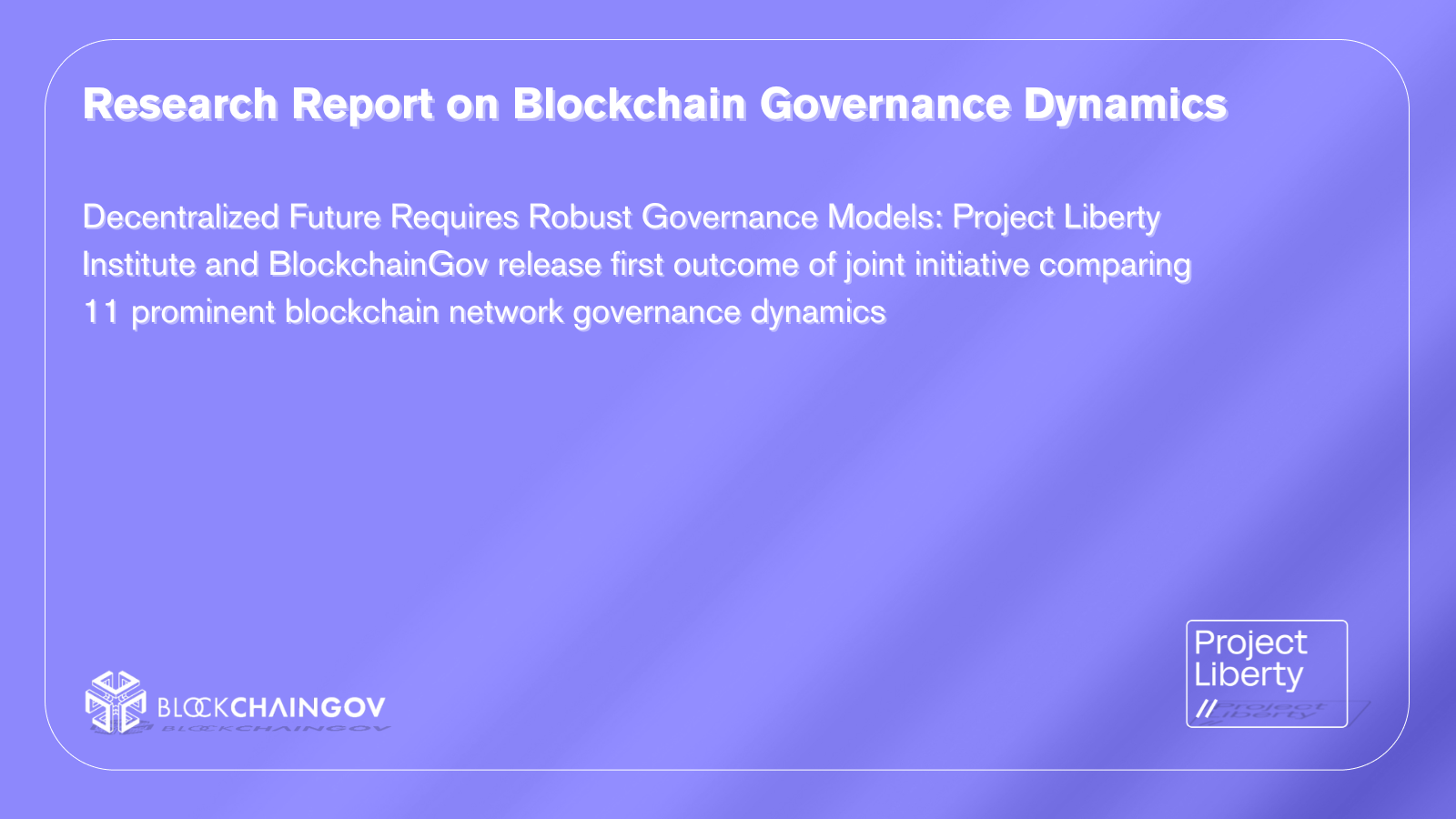
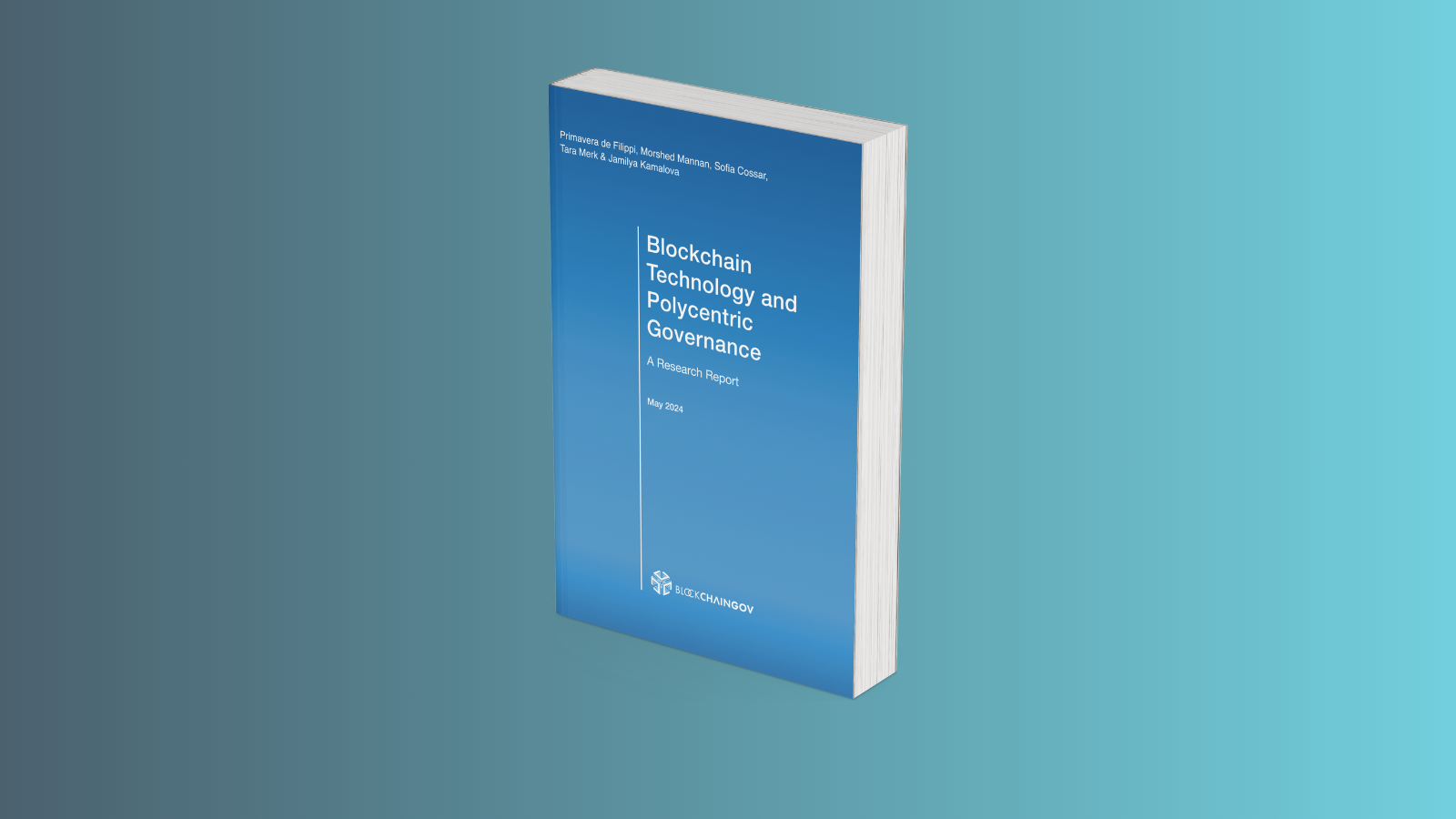
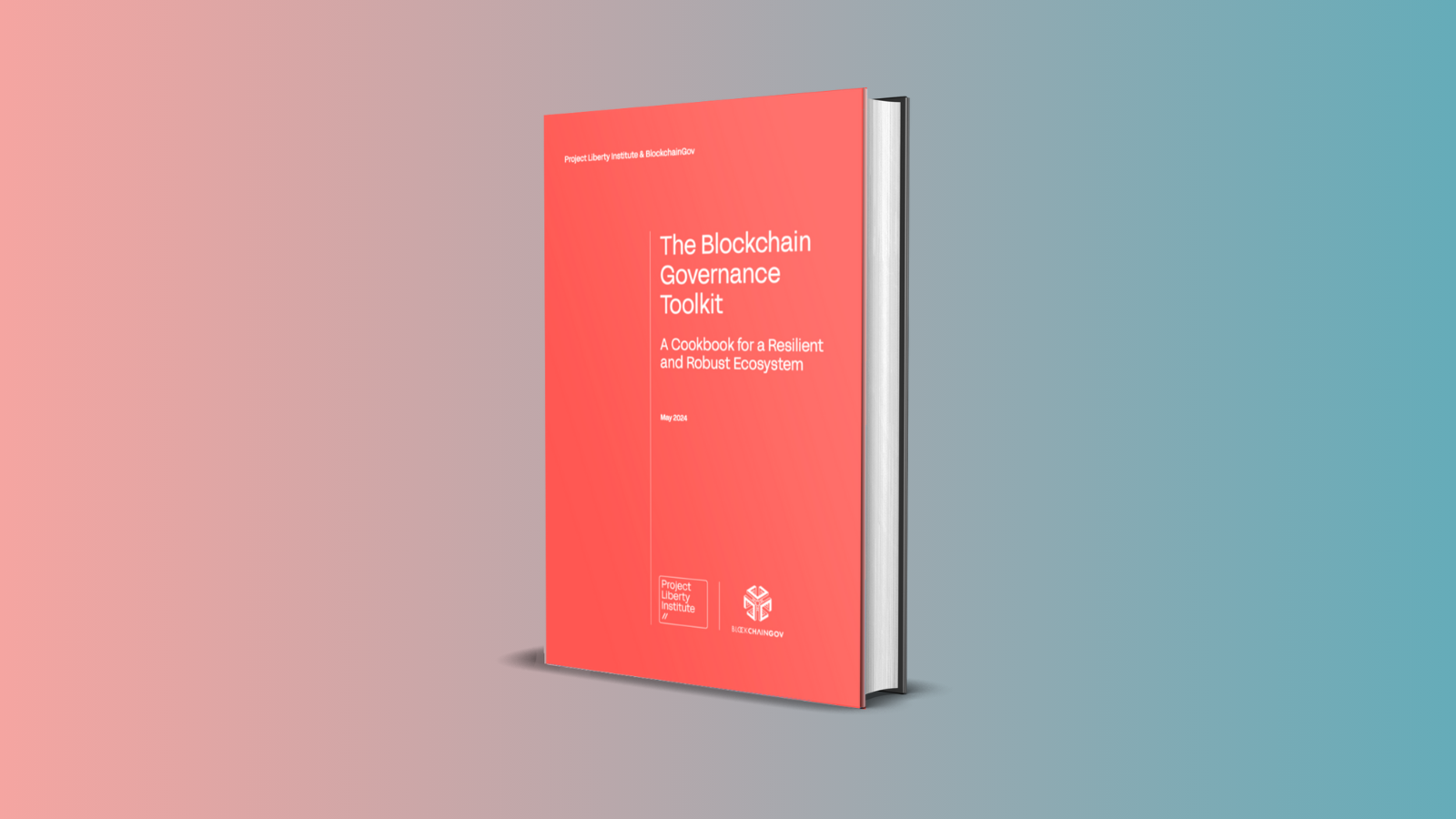
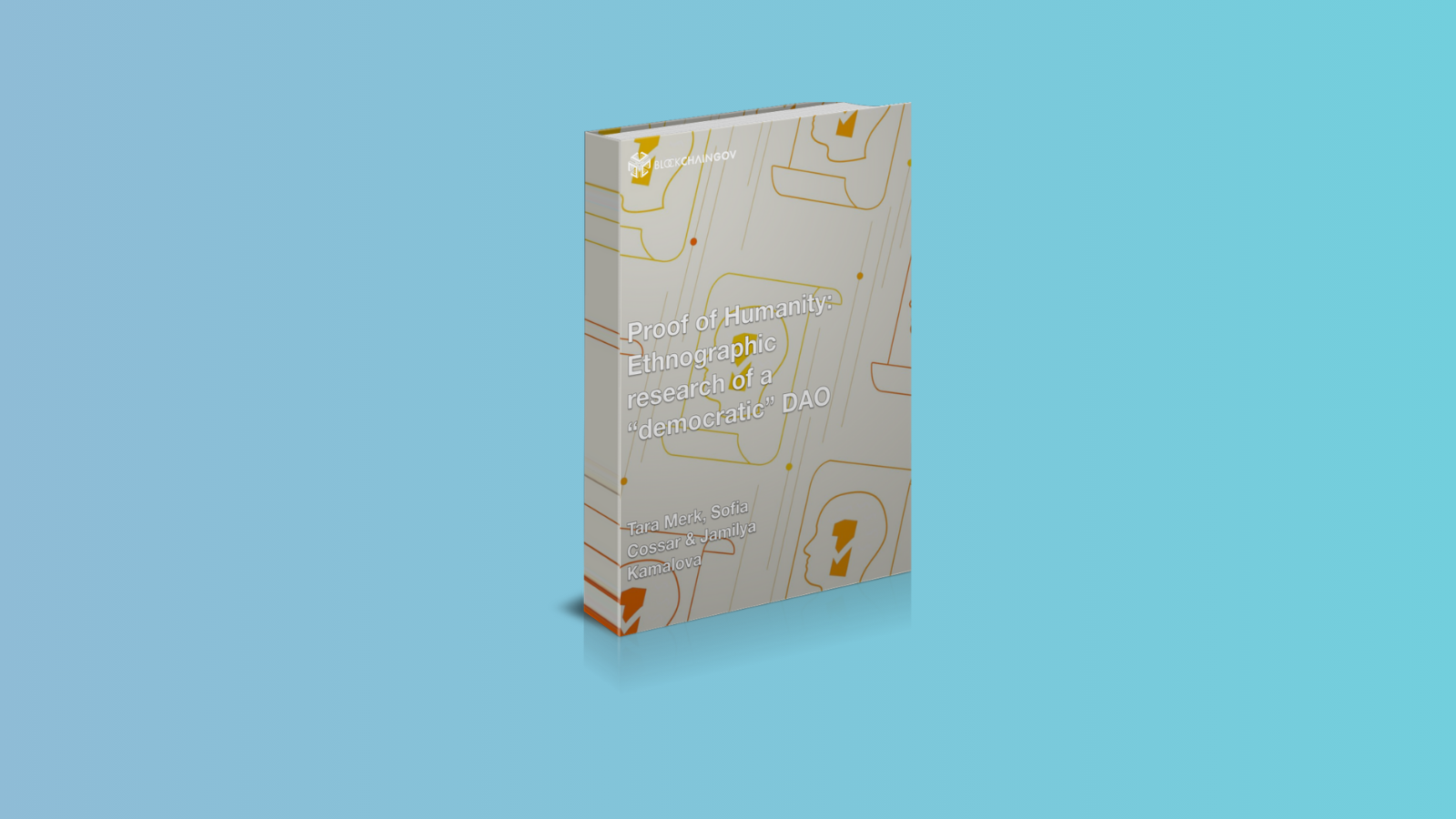
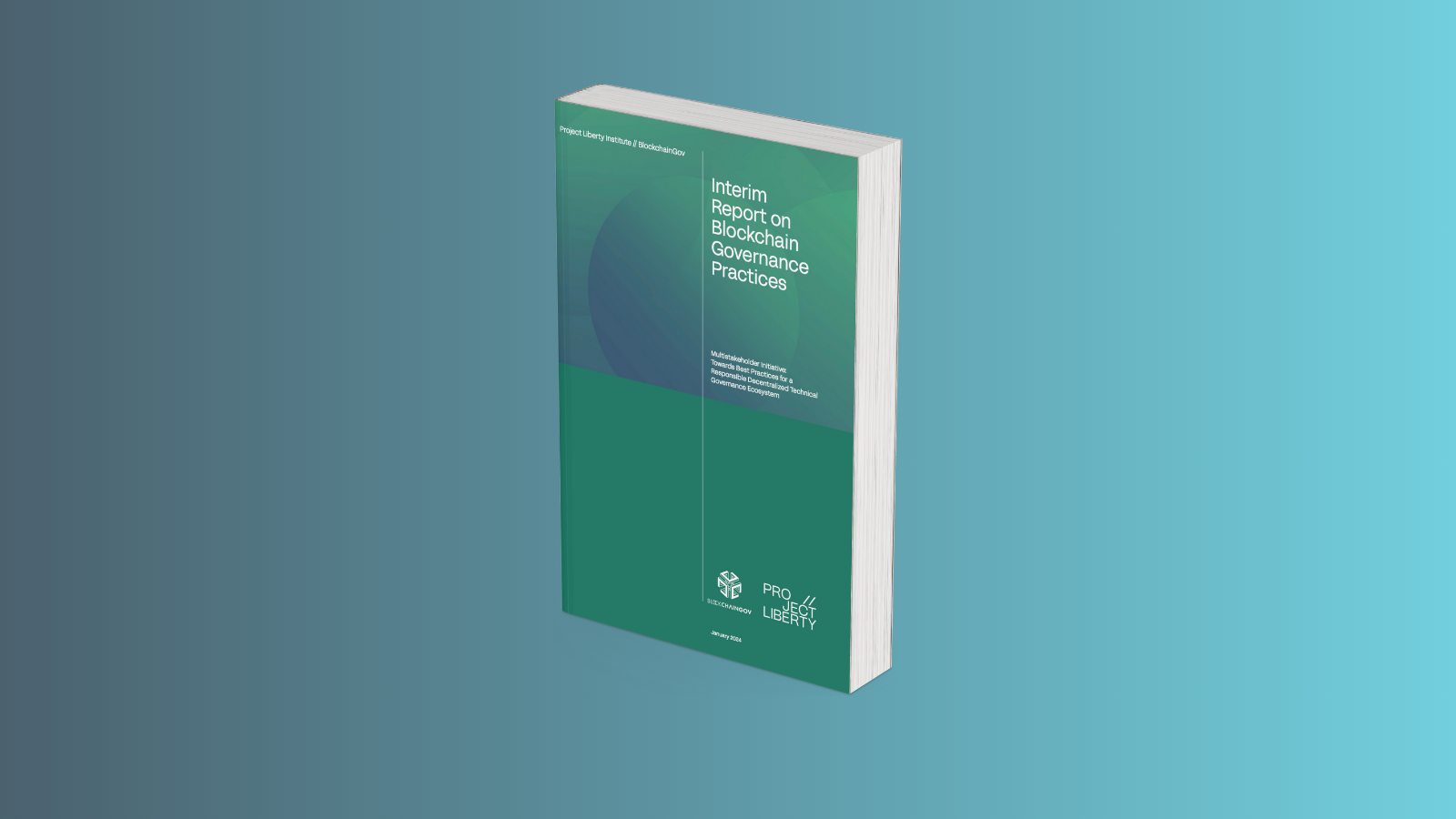
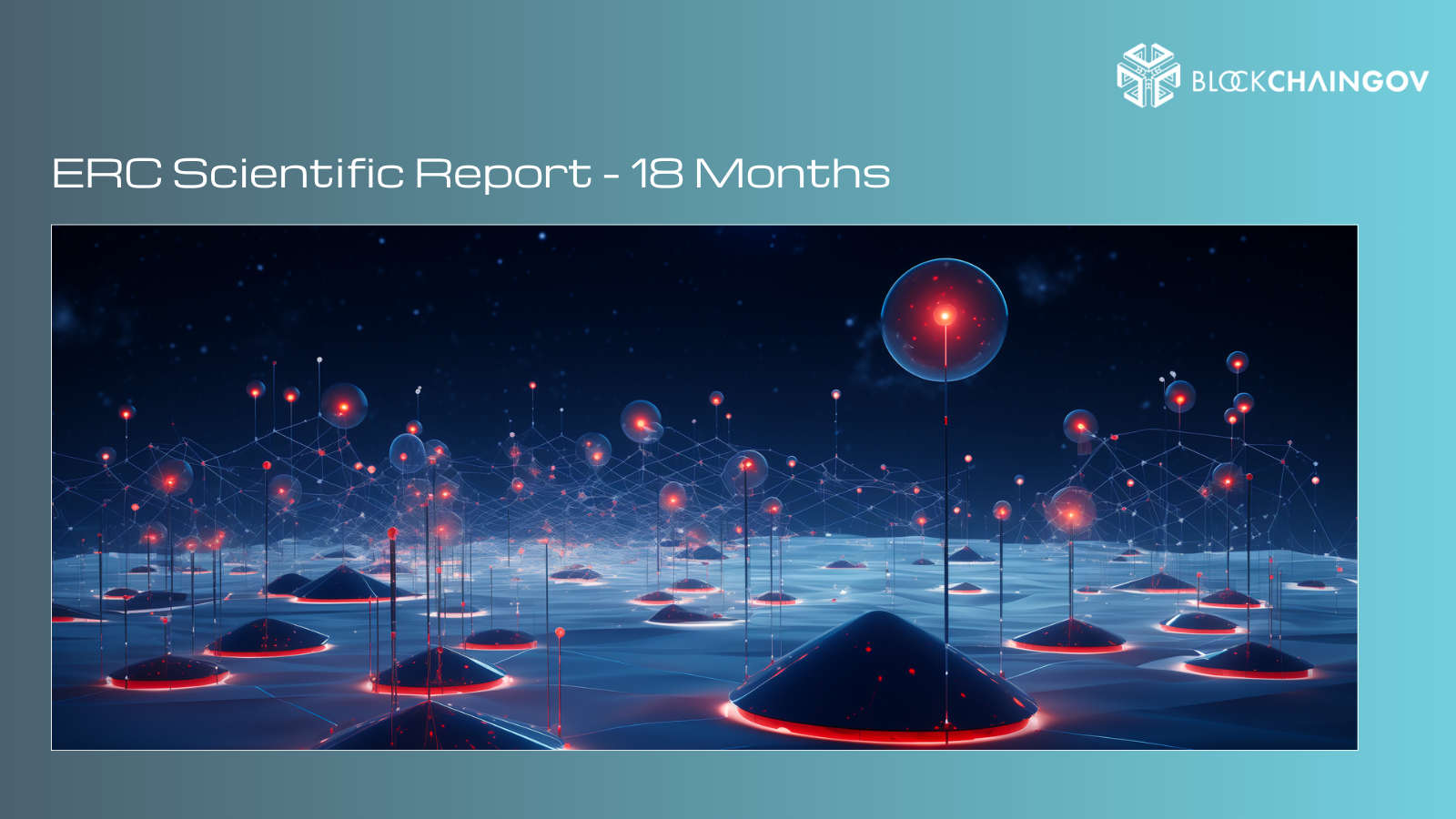

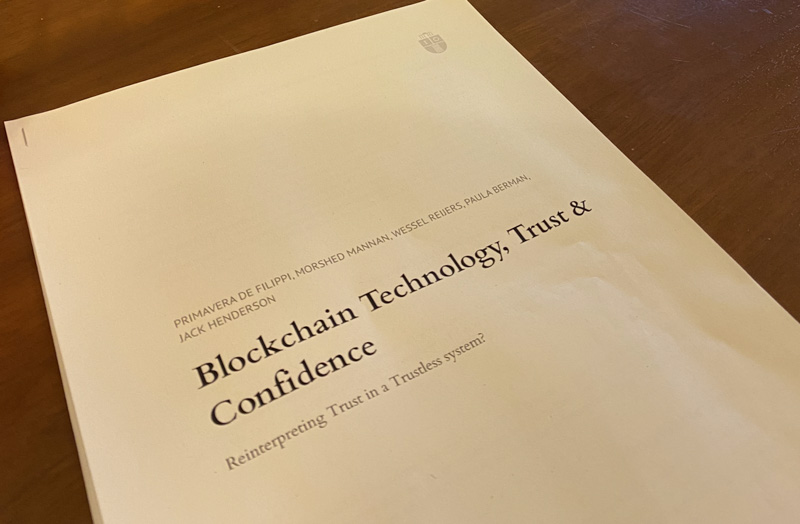
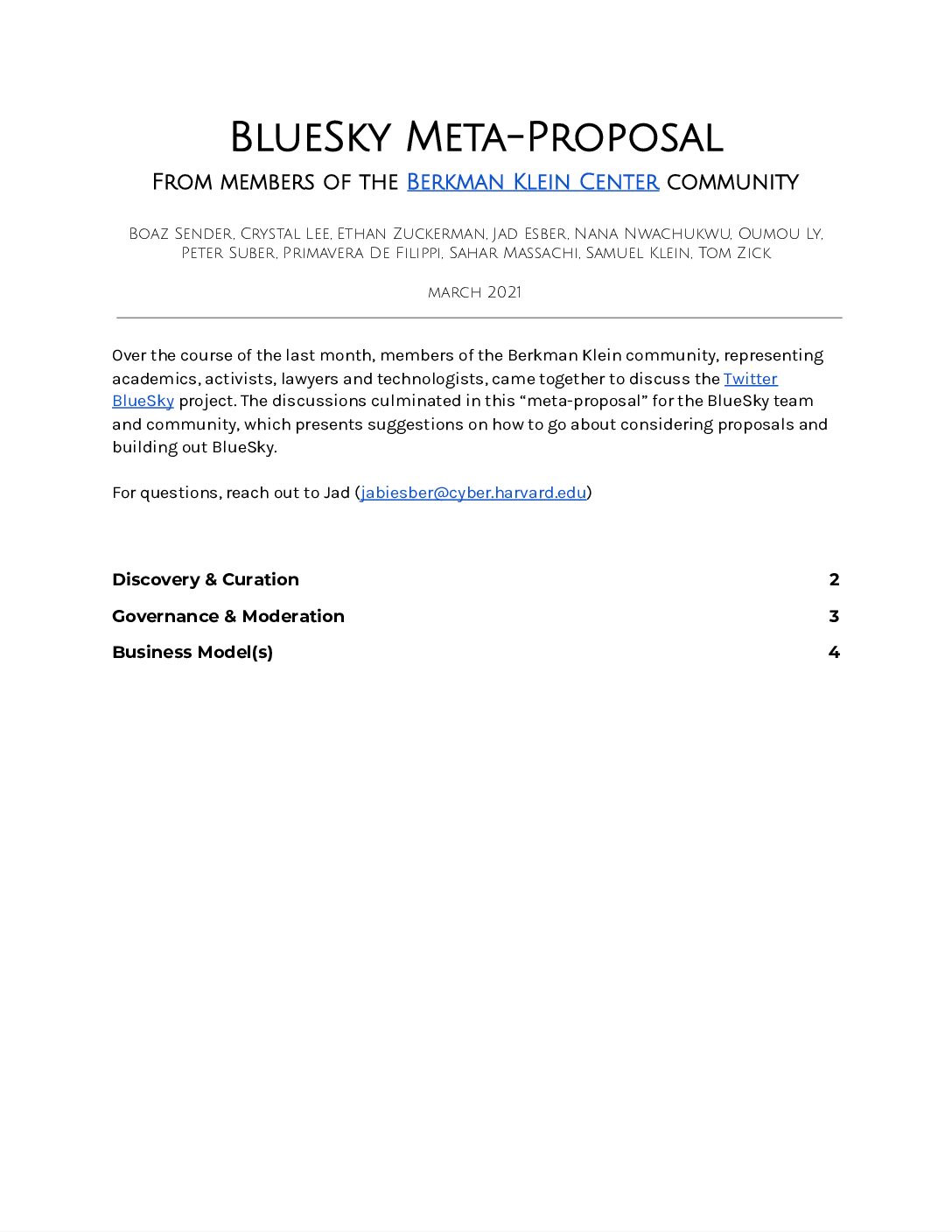
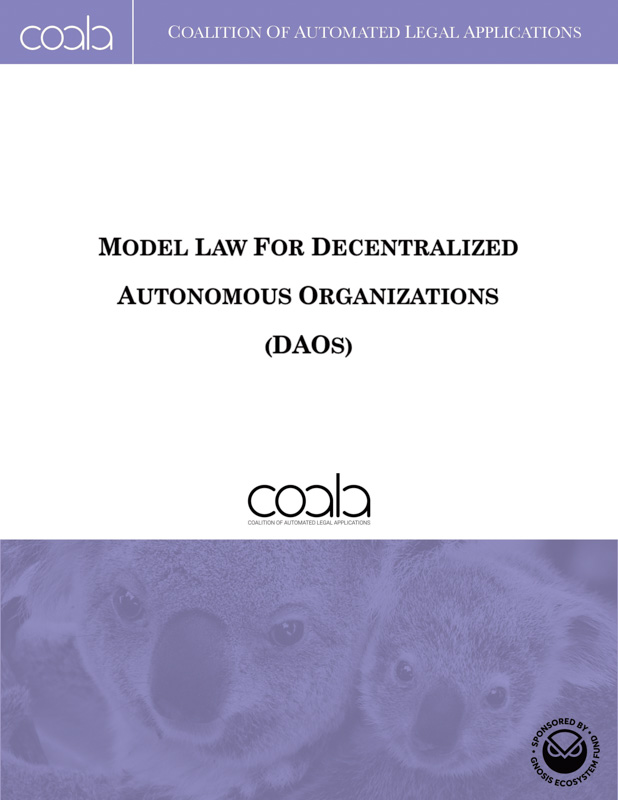
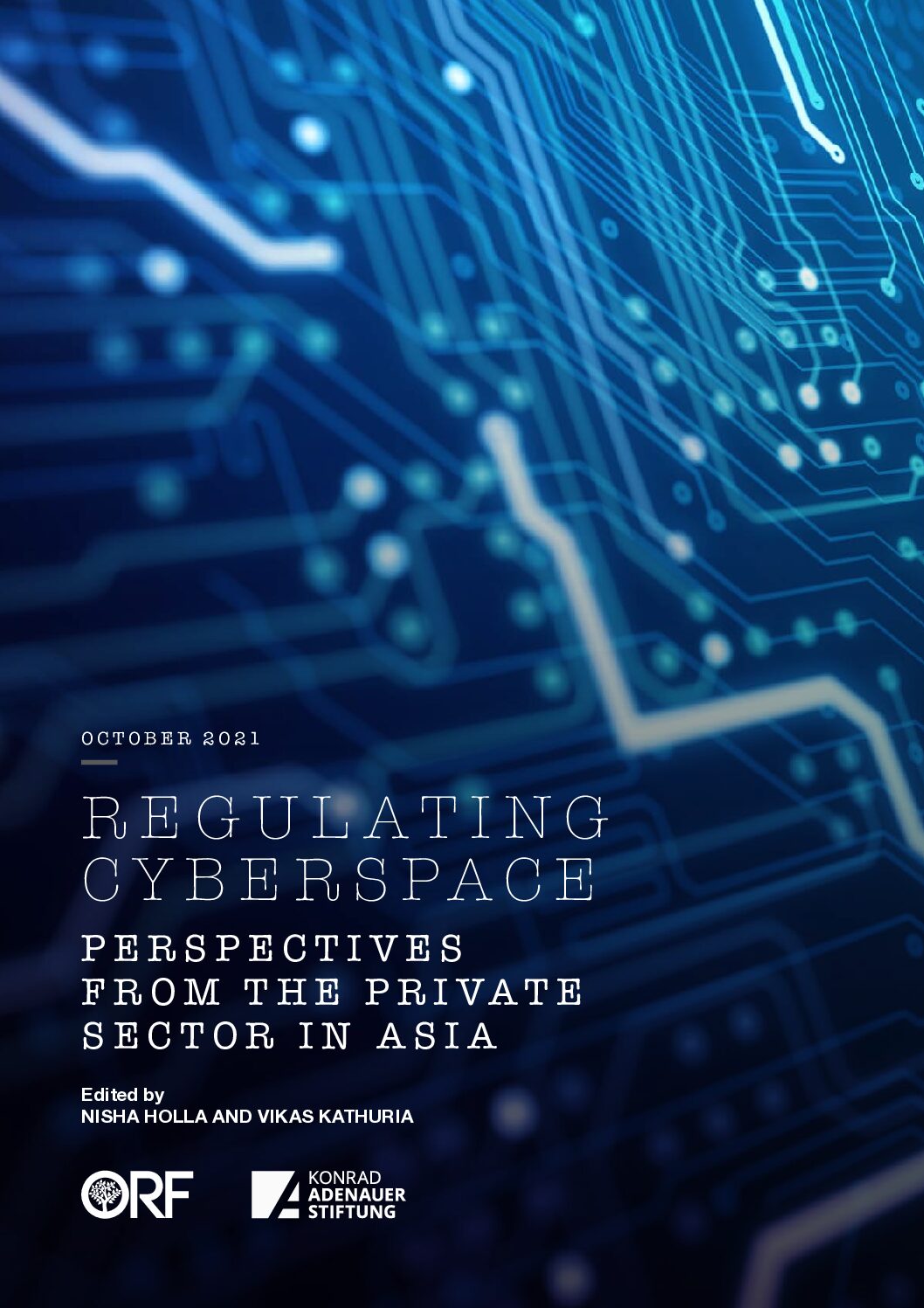




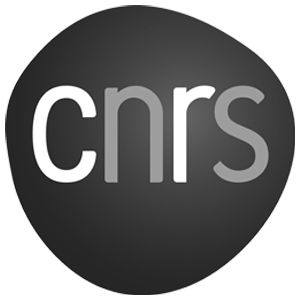

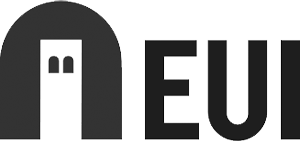


 This site is licensed under a Creative Commons Attribution 4.0 International License. The BlockchainGov project has been funded by an European Research Council Grant.
This site is licensed under a Creative Commons Attribution 4.0 International License. The BlockchainGov project has been funded by an European Research Council Grant.